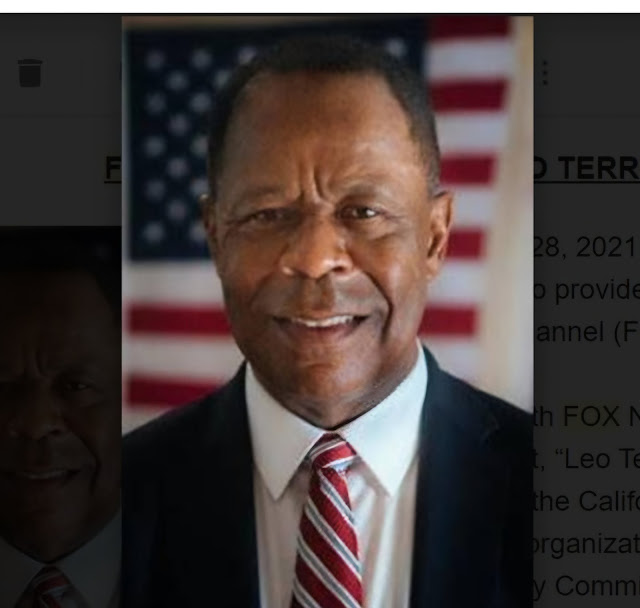- Get link
- X
- Other Apps
- Get link
- X
- Other Apps
In a move that has captured the attention of many across the United States, President-elect Donald Trump has announced the appointment of Leo Terrell as senior counsel to the assistant attorney general for civil rights in the Justice Department. This decision not only marks a significant shift in the landscape of civil rights advocacy within the federal government but also underscores Trump's strategy to align his administration with figures who have a proven track record in the field.
read also: Yoruba, Igbo, others should separate if Nigeria isn’t working – Sunday Igboho
Leo Terrell, a name synonymous with civil rights law and talk radio, has been praised by Trump as a "highly respected civil rights attorney and political analyst." Known for his contentious yet engaging presence on Fox News, Terrell brings to the table a wealth of experience and a history of high-profile cases that have shaped his reputation. His appointment has sparked a wave of congratulatory messages on social media, with "Leo Terrell" trending as netizens express their support for this strategic placement within the Justice Department.
Terrell's journey to this point is one of transformation and advocacy. Previously a Democrat, his shift to supporting Trump in 2020, which he humorously referred to as becoming "Leo 2.0," has been a topic of much discussion. This rebranding was not just political but also personal, with Terrell claiming to be a happier person as a Republican, embracing a new phase of his career with vigor. His legal education from the University of California, Los Angeles, combined with his extensive experience in civil rights law, makes him an intriguing choice for the Justice Department's civil rights division under Harmeet K. Dhillon, who has been nominated as Assistant Attorney General for Civil Rights.
The appointment comes at a time when civil rights issues, particularly those involving law enforcement, voting rights, and equal protection under the law, are at the forefront of national discourse. Terrell’s outspoken nature on these issues, especially in the media, positions him uniquely to influence policy and enforcement from within. His past, including his tenure at organizations like the Black-Korean Alliance and the Equal Employment Opportunity Commission, along with his pro bono work with the NAACP, showcases a commitment to civil rights that transcends political lines.
Critics and supporters alike are watching closely to see how Terrell will navigate his new role. His appointment is seen by some as a strategic move by Trump to inject a dynamic personality into the civil rights division, potentially shifting the department's approach to enforcement and advocacy. Terrell's public statements post-appointment have been clear; he aims to work towards "making America great again" by ensuring fairness and equality in legal proceedings, focusing on what he perceives as the illegal use of the system against certain political groups.
However, the transition from a television commentator and radio host to a senior legal position within the government is not without its challenges. Terrell will need to balance his previous public persona with the more restrained and formal requirements of his new role. His history of engaging in heated debates and his strong opinions on air will now need to be channeled into effective policy-making and legal strategy, which requires a different set of skills and a more nuanced approach to public discourse.
Moreover, working alongside Harmeet K. Dhillon, who shares a state origin but brings her own legal philosophy and political stance, will be pivotal. The synergy or potential clash of their approaches could significantly impact the direction of civil rights enforcement in the coming years. Dhillon, known for her conservative legal battles, particularly in election law, combined with Terrell's more centrist and media-savvy approach, could either harmonize to create a robust civil rights agenda or lead to a clash of visions on how to best serve the American people's interests in this domain.
read also: President Jimmy Carter funeral brings Trump together with presidents he’s criticized
The public's reaction, as seen through the trending congratulations on X and other platforms, reflects a mix of anticipation and scrutiny. There's an eagerness to see how Terrell will leverage his new platform to advocate for civil rights, especially given his past criticisms of what he saw as biases within the justice system. His promise to those who believe the system has been unfairly used against certain political groups - "help is on the way" - encapsulates the hope and expectation placed upon him.
As the nation watches this development unfold, Leo Terrell's appointment symbolizes not just a personal achievement but a potential shift in how civil rights will be addressed and protected under a new administration, with implications that could resonate for years to come.
.jpeg)

.jpeg)

Comments
Post a Comment